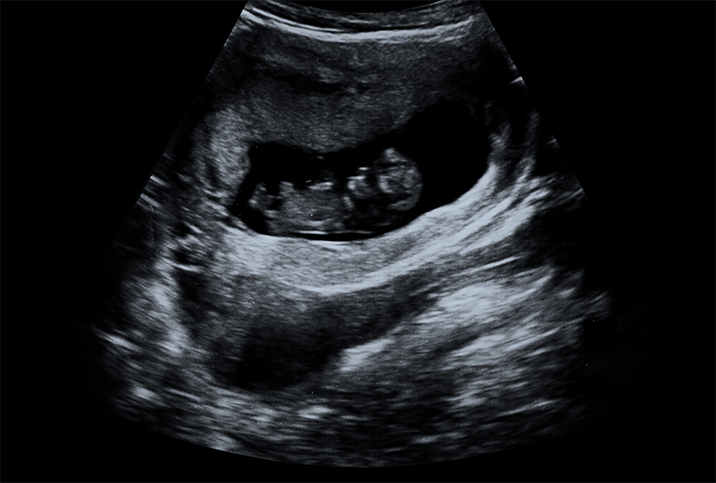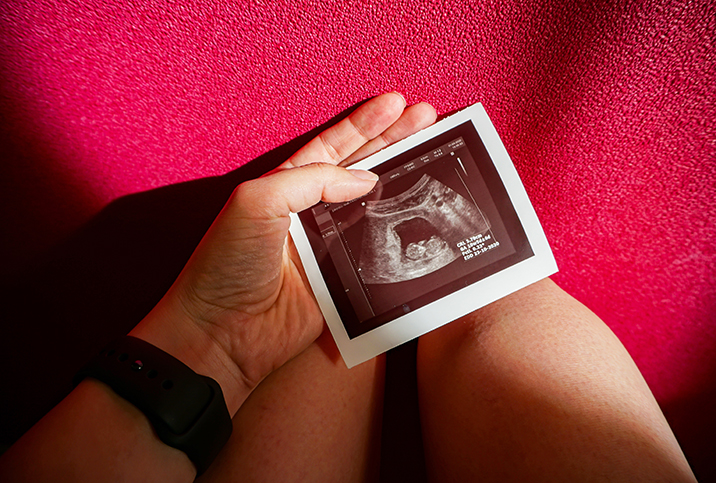Can You Wear Tampons During a Miscarriage?

The American College of Obstetricians and Gynecologists (ACOG) recommends you avoid use of tampons for two weeks during and after a miscarriage based on a chance of infection.
However, there is no supporting research indicating that wearing a tampon during miscarriage increases the risk of infection.
This incongruity can be a little confusing, so we talked to expert clinicians to find out if you can wear tampons during a miscarriage.
Early pregnancy loss
Miscarriage is defined as the loss of a pregnancy before 20 completed weeks. You may also hear it called an "early pregnancy loss" or a "spontaneous abortion."
The ACOG estimates miscarriage is the most common form of pregnancy loss, occurring in 26 percent of all pregnancies, or about 1 in 4 pregnancies.
The most common sign of miscarriage is vaginal bleeding. You might experience cramping and pain in your lower abdomen. If you have any symptoms of bleeding, cramping or abdominal pain during your pregnancy, contact your healthcare provider as soon as possible.
It is important to note that light vaginal bleeding can be quite common in the first three months of pregnancy. It does not necessarily mean you're having a miscarriage. However, you should always contact your healthcare provider at the sight of any vaginal bleeding, no matter how light. It's always best to get checked out.
For many people, the cause of miscarriage remains unknown. Most are caused by a chromosome abnormality or developmental issue, such as in the case of a molar pregnancy. Although you can't usually prevent an early pregnancy loss, you can reduce the risk by avoiding smoking, alcohol and drugs when pregnant.
Types of miscarriage management
Once your physician has confirmed that you are having a miscarriage, there are different treatment options. The best option depends on your unique situation, how many months pregnant you are and any additional health conditions.
Often, the pregnancy tissue may pass on its own with no assistance. If no tissue is left in the womb when your doctor assesses you, then no further treatment is required.
However, if there is still some pregnancy tissue in your uterus, this is an incomplete miscarriage. There are three types of treatment options:
- Expectant management involves waiting for the tissue to pass out of your womb naturally. This usually takes around two weeks but can take longer for some women.
- Medical management involves taking medicine that causes the tissue to pass out of your uterus.
- Surgical management involves having the pregnancy tissue surgically removed. Surgical procedures include dilation and curettage, and vacuum aspiration.
Regardless of the option you choose, symptoms after treatment are much the same and may include bleeding, cramping pains, diarrhea and nausea. Although you will experience bleeding, clinicians recommend that you don't insert anything into your vagina, including a tampon, for at least two weeks.
Tampons after miscarriage
There are several concerns about using tampons for bleeding after an early pregnancy loss, explained Monte Swarup, M.D., a board-certified OB-GYN and founder of HPD Rx, a health supplement company in Santa Monica, California.
"The cervix dilates for a miscarriage, but minimally compared to delivering a full-term baby," Swarup said. "The concern is that infection can move into the uterus because of the open cervix, and the manipulation of sex or a tampon could increase that risk."
Swarup said infections after early miscarriages are rare, but the risk increases the further the patient is along in the pregnancy.
A miscarriage involves expelling demised products of conception, explained Kecia Gaither, M.D., board-certified in OB-GYN and maternal-fetal medicine and director of perinatal services/maternal-fetal medicine at NYC Health + Hospitals/Lincoln in the Bronx in New York City.
"The vagina is filled with bacteria. Dead tissue in the face of a large bacterial pool provides a great focal point for infection. This raises concerns for toxic shock syndrome or endometritis [inflammation of the inner uterus lining]," Gaither said.
She explained that having a tampon in place prevents dead tissue from leaving the uterus and vagina quickly. This is the rationale for advising people to not utilize tampons in this situation. Although Gaither acknowledged there is no structured research evaluating the risk specifically, it makes sense to err on the side of caution.
What to avoid after a miscarriage
Both Gaither and Swarup agree with ACOG's advice to avoid wearing a tampon after early pregnancy loss for at least two weeks. This advice extends to anything penetrative, so you must also avoid sex that involves inserting a penis, fingers or sex toy. You should avoid having sex until all miscarriage symptoms have cleared up.
After an early miscarriage, Swarup recommends doing nothing vaginally for two weeks to decrease the infection risk.
"If significantly farther along in her pregnancy, I might recommend up to six weeks of pelvic rest," he said, adding this is because the cervix opens to let a miscarriage out. "The larger the fetus that your body must expel, the more dilation and the higher the risk of infection."
If you experience heavy bleeding, fever, chills or severe pain, then see your healthcare provider or OB-GYN immediately for medical advice. Heavy bleeding is defined as soaking through more than two maxi pads per hour for more than two consecutive hours.
Although it may seem normal to want to insert a tampon after a miscarriage, it's best to follow clinical advice and avoid inserting tampons. Although the risk of infection after miscarriage is low, it is always better to be cautious and choose pads for miscarriage-related bleeding.
Getting support
In addition to the physical practicalities of bleeding during miscarriage, early pregnancy loss also is a heartbreaking and emotional experience. It can be very upsetting for you and your partner. You may have questions about why it happened or what happens to the fetus, or concerns about trying for another baby. This is all very natural and can be quite confusing. Different people grieve in different ways.
Support is available to help you deal with the emotional side of miscarriage. If you don't feel comfortable talking to family or friends, then talk to your healthcare provider for support and guidance. They will be able to help you find counseling, therapy, support groups, helplines or other resources that specialize in supporting people through early pregnancy loss.


















